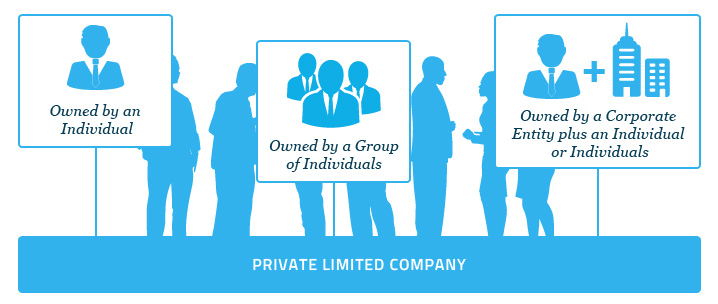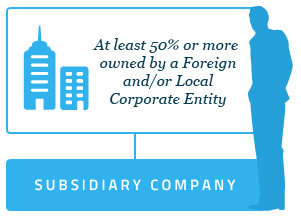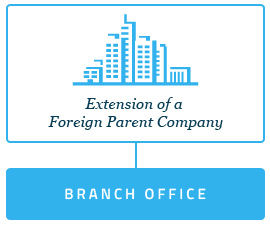Corporate Structures in Singapore
Options for Foreign Individuals and Companies

The business structure you choose influences everything from day-to-day operations to taxes, to how much of your personal assets are at risk. You should choose a business structure that gives you the right balance of legal protections and benefits
Singapore is a premier business hub in the region, offering robust economic and financial fundamentals bolstered by the stable socio-political environment.
The government’s visionary policies and a pro-business approach have contributed to a thriving enterprise ecosystem and it has been ranked as the best place in the world to do business for ten consecutive years in the World Bank’s Doing Business report.
Moreover, Singapore offers a favorable tax regime with a competitive tax rate, strong corporate structure options, single-tier taxation, and the absence of a tax on capital gains.
Companies are able to efficiently tap on Singapore’s geographic proximity to the fast-growing emerging Asia market along with its world-class infrastructure.
The enterprise landscape has continued to remain abuzz with new company incorporation in recent years against the backdrop of the lackluster global economy. This was mainly due to the resilient local economy that was stimulated by the government’s calibrated move and the shift in global focus towards Asian markets. The local entrepreneurship remained active alongside a surge in indigenous and foreign start-ups.
Singapore companies and foreign companies also set up Singapore subsidiaries for effective operations, as well as for tax management and efficient corporate structure purposes. As the global economy is returning to a growth path and the regional economies are expected to score better, companies and entrepreneurs should focus on effective corporate structures in Singapore that is best suited to their business.
There are several types of business entities and corporate structures available in Singapore. While Sole Proprietorships, Partnerships, and Limited Liability partnerships are more suited for resident individuals and companies, the Limited Liability Companies, Subsidiary Companies, Representative Offices and Branch office corporate structures in Singapore are more ideal for foreign individuals and companies. Among these, the Private Limited Entity, Subsidiary Company, and Branch office are the most popular types of corporate structure. Following is an overview of Singaporean structuring options available for foreign corporations, entrepreneurs and enterprises.
Private Limited Company
By far the most popular type of corporate entity in Singapore is the Private Limited Company (PLC). It provides the most ideal structure for most of the businesses because, besides the separate legal identity, it also provides a formal professional image to a business. A PLC is limited by shares, i.e. its shareholders are not liable for its debts and liabilities beyond the share capital that they have subscribed to.
The Corporate Veil and its Benefits
A PLC incorporated under the Companies Act (Cap. 50) is a separate legal entity from its owners/shareholders. Several consequences flow from this separate legal personality, which in legal parlance is referred to as a corporate veil.

- A company may sue and be sued in its own name
- Own property in its own name
- The owners of the company are generally not liable for the debts and obligations of the company.
- The perpetuity of the company remains even after the shareholders’ demise or change in the shareholders/ownership.
Key Requirements of PLC
- At least one shareholder, the shareholder can be an individual or a corporate entity. Singapore allows 100% foreign ownership.
- At least one director who is ordinarily resident in Singapore. The director and shareholder can be the same or different person.
- There must be at least one company secretary and must be a natural who is ordinarily resident in Singapore.
- Initial paid-up share capital of at least S$1.
- A physical Singapore address for the purpose of registration.
- Unless exempted, must appoint an auditor within three months of incorporation. Exempted companies are those, which have less than 20 shareholders, none of its shareholders are corporate and the annual turnover is less than S$5 million.
Share Capital

The Singapore Companies Act allows companies to be incorporated with a minimum Paid up capital of S$1. Paid-up capital is essentially the portion of share that the company has issued and received payment for in full. A company may, subsequent to its formation, increase its share capital by issuing additional shares.
Shareholding Structure
At the point of incorporation, there must be a minimum of one shareholder. A PLC can have a maximum of 50 shareholders. An individual or a group of individuals may own a private limited company. A company may also be owned by another corporate entity either wholly or jointly with an individual or a group of individuals.

If more than 50% of a company’s share is held by another company, then it becomes a subsidiary of the shareholding company i.e., the parent company. An individual or a group of individuals or another corporate entity may hold the remaining shares. Generally, foreign SMEs setting up in Singapore prefer the subsidiary structure for their Singapore entity.
More on this » What is a Share Certificate? / What is a Shareholders’ Agreement?
The scope of a Company

The Memorandum of Association (MoA) is the document that sets up the company and the Articles of Association (AoA) sets out how the company is run, governed and owned. The AoA includes the responsibilities and powers of the directors and the means by which the members exert control over the board of directors.
The MoA, which includes a statement of compliance, must accompany the application for registration of the company along with the new company’s AoA.
Shareholders’ Agreement

A shareholders’ agreement clearly enlists the rights and obligations of the shareholders in order to protect their interest and the welfare of the company. This will prevent any acrimonious fallout between the shareholders. The shareholders’ agreement will define the rules of engagement such as – how important decisions have to be made, how the company should be run, define the rules of sale/transfer of shares in order to protect the interest of shareholders and prevent ownership dilution.
What is the Role of Shareholders?
By subscribing to shares and paying for the same they become owners of the company. The shares endow them with rights that include those conferred by the Companies Act as well as those conferred by the constitutional documents. In small PLCs that are tightly held, the shareholders have overwhelming rights to control the company’s management and the right to appoint or remove the officers.

What is the Role of a Director?
The shareholders/owners of the company select and appoint the company directors. The company directors are responsible for managing company affairs. They are answerable to the company’s shareholders. In case of large companies, the directors take on a supervisory role managing only the key decision and leaving the everyday affairs to the executive managers. In small companies, they invariably don several hats, besides managing the daily operations of the company they also undertake the statutory and fiduciary responsibilities.
What is the Role of a Company Secretary in Singapore?
The company secretary is responsible for all compliance matters and maintains the company register. The director appoints a company secretary and such appointment must be made within six months from the date of incorporation of a company. The company secretary must ensure that all regulatory requirements are complied with, and this includes the filing of returns and documents with ACRA, maintaining registers, conducting a meeting of shareholders and directors and providing advisory services to the directors and other officers, act as a custodian of the company seal and other legal documents.
Singapore Subsidiary Company

Foreign companies may wholly own a Singapore company, i.e, 100% of its shares. The subsidiary will be rendered a separate legal entity and the parent company’s liability is limited to the subscribed share capital only. The corporate veil will protect the assets and interests of the parent company from the liabilities and debts of the subsidiary.
The subsidiary will be treated as a local company for the purpose of taxation. This will enable the foreign company to enjoy the competitive Singapore tax rates and other qualifying exemptions and subsidies.
Besides the key requirements of a PLC, an auditor must be appointed for the subsidiary within three months of its incorporation. Audited accounts must be submitted to the IRAS annually.
Singapore Branch Office
A branch office, unlike a subsidiary, is an extension of the foreign company. The Branch office must be registered with ACRA, but it does not gain a separate legal identity. The foreign company will be held responsible for the liabilities of the branch office.
The Branch Office must operate under the same name as that of the foreign company’s head office and requires an approval before registration in Singapore. It is allowed to carry out business activities that fall within the ambit of foreign head office.

The branch office is allowed to repatriate its earnings. The portion of its earnings that are attributable to its Singapore operations alone are subjected to the prevailing Singapore corporate tax. The incomes earned outside Singapore is not charged. The branch office is required to file its own accounts as well as that of the parent company’s accounts annually.
The head office must appoint one agent who is an ordinarily resident in Singapore to manage the compliance matters of the branch office and to receive any notices served to the branch office. A Singapore branch must have a registered office located in Singapore. All its business correspondences must bear the name and place of incorporation.
Though the compliance requirements appear simple, the extension of liabilities to the head office or parent company in the absence of the corporate veil and denial of access to the coveted local tax benefits and concessions makes this corporate structure less popular among the foreign companies. Generally, foreign companies prefer the subsidiary company route.
How can Rikvin help you?
Foreign entrepreneurs and companies setting up companies in Singapore need to engage a corporate service agency. They cannot self incorporate a company. Rikvin can provide you with the best of services, which does not stop with the incorporation of companies.
Singapore Company Incorporation + Nominee Director Service
If you choose to manage your company remotely from your overseas location then you can engage us for incorporation as well as subscribe to our nominee resident director service in order to meet the resident director requirement for registering a company. After incorporation, you may visit Singapore on a visitor visa to manage your business affairs as and when required.
Singapore Company Incorporation + Employment Pass Service
If you are required to be present in Singapore to directly manage your Singapore company, you may do so by applying for an Employment Pass for you or any of your employees. We will first help you incorporate the Singapore company with our nominee resident director and subsequently apply for the Employment Pass (EP). On approval of the EP our nominee director will tender resignation leaving the reins to you.
Singapore Branch Office Registration + Nominee Resident Service
Likewise, for the Branch Office, you may engage our resident nominee agent service for registration and run the operations from overseas.
Singapore Branch Registration + Employment Pass Service
Alternatively, after registering the branch office with our nominee resident agent service you may apply for EP for your own employees and on successful approval, our resident agents will tender the resignation leaving your own employees to manage the show.
Let us help you understand the types of corporate structures in Singapore
Speak to our incorporation specialists who are experts when it comes to Singapore's company laws and regulations.


